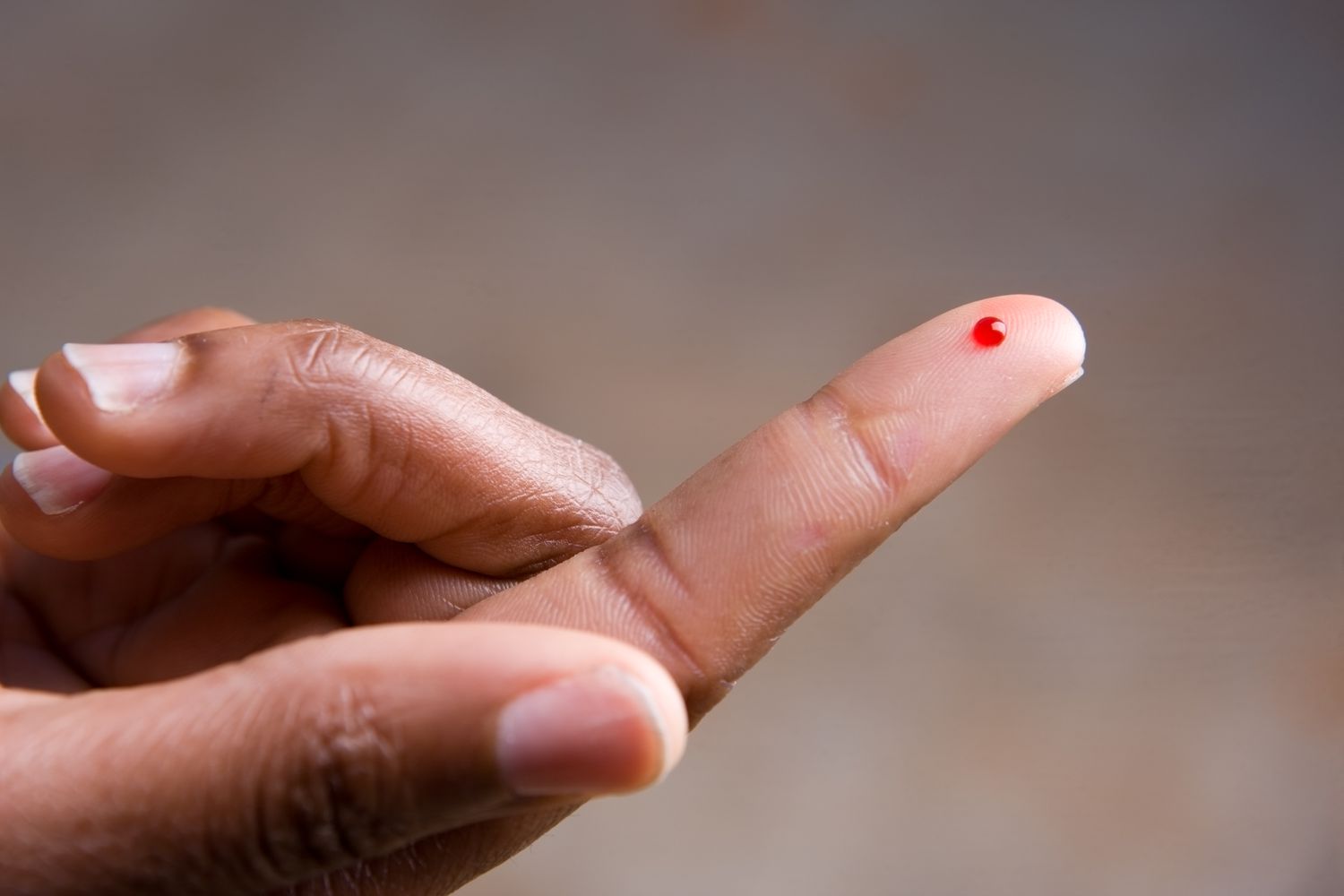FDA Approves First Over-the-Counter Syphilis Test Kit—And There's More: Home Testing for Various STIs

At-home STI tests are increasingly common in stores and online—but for a while, the only one with the approval of the Food and Drug Administration was for HIV.
That’s beginning to change, however. Most recently, the FDA approved an at-home, over-the-counter kit that tests for syphilis. If left untreated, syphilis can lead to serious health problems such as fevers and rashes, and eventually impact the heart and brain.
The FDA’s approval of the product, called NOWDiagnostics’ First To Know Syphilis Test, means the agency had “a real-world study at clinical trials, and they have proven that they are accurate,” Carlos Zambrano, MD, a physician specializing in infectious disease at Loretto Hospital, told Health.
The authorization, granted on August 16, comes amid a nationwide surge of syphilis cases. According to the Centers for Disease Control and Prevention, syphilis cases increased by 80% between 2018 and 2022, from 115,000 cases to over 207,000. Even more staggering is the rise in congenital syphilis—cases where the disease is passed from mothers to newborns—with more than 3,700 documented cases in 2022, up from 1,300 in 2018.
In response to this growing crisis, the Department of Health and Human Services established the National Syphilis and Congenital Syphilis Syndemic Federal Task Force earlier this year. An FDA spokesperson told Health in an email that the authorization of this test will directly contribute toward the goals of the task force’s STI National Strategic Plan, which aims to reverse the dramatic rise of STIs in the United States.
The First To Know Syphilis Test is what’s known as a treponemal test. It provides a straightforward yes or no answer about whether you have antibodies to Treponema pallidum, the bacterium that causes the disease, said Edward Hook, MD, a professor of medicine and epidemiology at the University of Alabama at Birmingham and scientific advisor to the American Sexual Health Association.
This type of test has been used in clinics for years, but it’s the first time it will be available over the counter. The test requires a simple finger prick and collection of a few drops of blood. Results show up within 15 minutes.
However, having “a positive test doesn’t mean the patient has syphilis for sure,” Zambrano said. You could get a positive reading if you’ve had prior exposure to syphilis but have already received treatment. To get a prescription for an antibiotic, a positive test must be confirmed by a healthcare provider.
“It is important to determine if the disease is ‘active’ based on your history, a physical examination, and completing a diagnostic nontreponemal test,” Michelle Forcier, MD, a clinician at Folx Health, a health platform for the LGTBQ+ community, told Health.
False negatives are rare, but they can happen. “No test is perfect, and what matters is using these tests in evidence-based and sensible ways to help increase early disease detection and treatment,” Forcier said.
The manufacturer, NowDiagnostics, said the test will be available in late 2024 and is expected to cost $29.98.
There are many products that offer at-home testing for hepatitis B, trichomoniasis, and other STIs, most of which have not received FDA approval. But the syphilis test isn’t the only one backed by the agency.
In 2012, the OraQuick InHome HIV Test was the first STI test to win FDA approval. That test uses a mouth swab to detect HIV antibodies and delivers results in about 20 minutes. Like the syphilis test, it’s easy to use and offers quick results, though it’s slightly more expensive, Zambrano said.
More recently, in November 2023, the agency authorized the first diagnostic test for chlamydia and gonorrhea, the LetsGetChecked Simple 2 Test. This test allows you to collect a urine or vaginal swab sample at home, but unlike the syphilis test, you have to send the sample to a lab for analysis. Results are typically available within two to five days.
Experts say at-home tests could be a big win in expanding access to healthcare. The tests are especially useful for people who might have trouble getting to a clinic due to work, childcare, transportation, or insurance issues. At-home tests also offer a level of discretion and privacy that many appreciate. “In part due to the stigma associated with all STIs, some persons are hesitant to seek testing in person,“ Hook told Health.
Testing at home might also encourage more frequent testing—simply because it’s easier. “It does not require having a provider or making and getting to an appointment,” Forcier said. These advantages may benefit people from places with fewer sexual health resources and clinics, such as rural areas.
At-home STI tests aren’t without limitations, however. They are usually not covered by insurance, whereas clinics like Planned Parenthood often offer STI testing for free. And experts say that over-the-counter tests that haven't received FDA approval may be less accurate.
It’s also important not to view at-home tests as the final step in determining STI status. Instead, think of the kits as a preliminary measure, experts said. If you test positive, it’s time to consult a healthcare professional.




